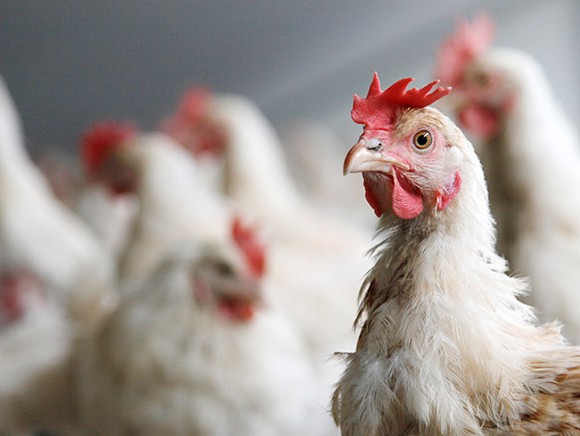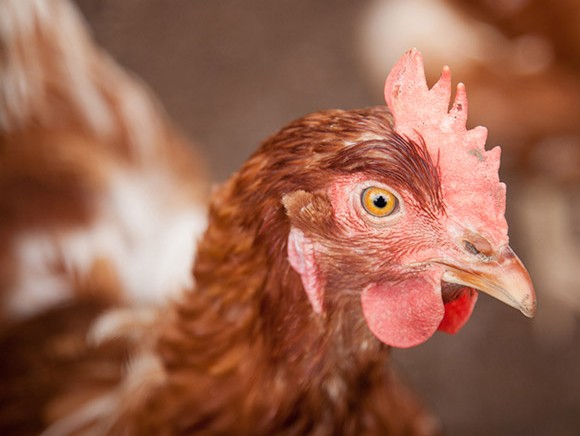
The Dutch government is good at accepting products from abroad while applying much stricter criteria to Dutch companies, and is further supported in this by the independent(?) watchdogs that fall under the various ministries.
The situation is clearly illustrated by the example of poultry from Ukraine. When visiting the Netherlands back in March 2015, the Ukrainian Minister of Agriculture, Aleksej Pavlenko, stated that for the foreseeable future his country will not be able to produce poultry meat in line with the current European legislation. He indicated that the issue of food safety must be addressed first. Since much work still has to be done on that, animal welfare will not become a priority until much later. Despite his words, the export of high-risk poultry meat from Ukraine to the EU, and hence to the Netherlands, is permitted thanks to the EU’s unilateral acceptance of the free trade agreement, which was also signed by the Netherlands. Due to the unilateral acceptance, however, the high-quality poultry meat produced in the Netherlands may not be exported from the EU to Ukraine.
The production of poultry meat in Ukraine has received financial investment from a number of banks (source: De Volkskrant, 14 September 2015) as well as European support (via the European Investment Bank). The decision to allocate European subsidy to Poland for the establishment of large slaughterhouses there as a way of increasing competition within Europe is controversial enough, but the idea that this is also being done beyond Europe’s borders – and that those borders are subsequently being opened to accept inferior products – is extremely disturbing. Compared with the European investments, the banks’ investments in foreign companies are perhaps less cause for concern.
Since the middle of last year, veterinary inspections have no longer been carried out in Ukraine, meaning that not even the national level – which is way behind the European and in particular the Dutch level – is being enforced. In contrast, the day-to-day veterinary supervisory and enforcement activities by the Netherlands Food and Consumer Product Safety Authority (NVWA) go much further than stipulated under European law. In fact, the package of demands that was agreed upon with the NVWA in the form of a Hygiene Code in order to comply with all legal requirements, the latest version of which was recently re-approved by two Dutch ministries (namely Economic Affairs, and Health, Welfare & Sport) has suddenly been cast aside by the watchdog – without any consultation with the Dutch poultry processing companies, by the way. Through NEPLUVI, the poultry processing companies have requested to meet with NVWA but it has systematically rejected their request.
It is of course a possibility that a political party (what’s the situation with the State Secretary’s party?) believes there should no longer be any poultry companies and poultry slaughterhouses in the Netherlands. Perhaps one of the solutions is to simply “enforce to death”, to use the watchdog’s own terminology. The Dutch Lower House allows plenty of scope for that and has encouraged even higher fines.
It is apparently irrelevant that the production in the Netherlands is at world-standard level and that processing companies are making continued efforts to improve food safety, animal welfare and other important sustainability-related factors. While politicians can make it impossible for companies to produce in the Netherlands, they cannot dictate what may be sold in Dutch supermarkets. If the members of the Lower House care about food safety, animal welfare and employment in the Netherlands, they should call the State Secretary to account.

What do the Dutch companies want?
- To be given a fair chance. The enforced standards should not be stricter than the legal requirements. The NVWA must refocus on its core task: ensuring compliance with the European rules relating to food safety and animal welfare. That should be possible in view of the EUR10 million the poultry processing companies pay to the NVWA for its supervisory activities each year. Surely it cannot be the case that this organisation subsequently tries to push the companies that fund it over the edge of the abyss.
- That the relevant European rules are enforced in all Member States.
- No interventions in market dynamics through European subsidies for investments in other Member States.
Source: ©Images licensed by SignBiblio